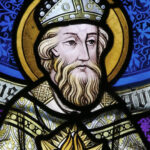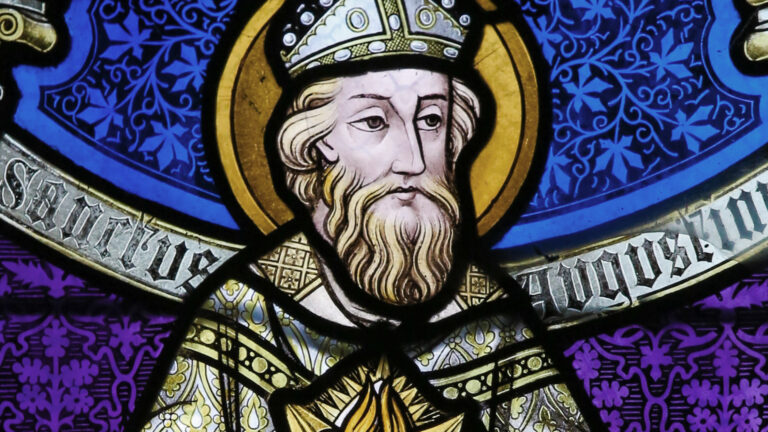 While many evangelicals have heard of D.L. Moody, most do not know nearly enough about the famous evangelist. Kevin Belmonte is hoping to change that.
While many evangelicals have heard of D.L. Moody, most do not know nearly enough about the famous evangelist. Kevin Belmonte is hoping to change that.
I’ve interviewed Kevin before about his G.K. Chesterton books, but his most recent biography, D.L. Moody – A Life: Innovator, Evangelist, World-Changer, aims to give readers a fuller understanding of one of the most influential evangelists of the last 200 years.
Today, Kevin and I focus most of our attention on Moody’s life, and tomorrow, our discussion centers around his legacy.
Trevin Wax: The subtitle for your new biography is Innovator, Evangelist, World-Changer. Many evangelicals probably think of Moody primarily as an evangelist. Why are those other two descriptions just as important when applied to Moody?

Kevin Belmonte: That’s a great question.
To be sure, Moody’s legacy as a herald of the gospel stands pre-eminent. After all, a conservative estimate puts the number of people who heard him commend the faith at 100 million, and this in a time decades before the coming of radio and television. So that facet of his life’s work must always be seen as a centerpiece.
But Moody has a place in history too as an innovator and world changer.
Trevin Wax: In what ways?
Kevin Belmonte: Well, we should remember that he was the founder of four schools, specifically designed to give disadvantaged young people a top shelf academic education or sound vocational training.
At the heart of it all, Moody said these schools were intended “to help young men and women of very little means to get an education such as would have done me good when I was their age. I want to help them into lives which will help them most for the cause of Christ.”
In creating these schools Moody, who had just a few years of formal education himself, became a world changer, presenting opportunities for a future that young men and young women – among them African Americans and Native Americans – would never have had, but for his vision and commitment to the value of a fine education.
By the time of his death in 1899, some 5,000 young people had come through these schools. Stop to consider, just for a moment, what the ripple effect of this fact meant for all these young people, to say nothing of their descendants, or the students that have attended Moody’s schools in the 115-years since his passing. It’s really quite extraordinary, when you think about it.
Trevin Wax: So, Moody was an educator. How did he innovate?
Kevin Belmonte: Within the context of these schools, Moody was an innovator in that he placed great emphasis on what we would now call “service projects.” All the students were expected to contribute to the life of the schools by working several hours a week.
Sometimes this meant working on the farms that were part of the Northfield schools, say to harvest crops, or taking care of livestock. For young women it might mean work in the school library or laundry room.
In this way, students were taught the importance of “giving back” in exchange for the privilege of a fine education. Then too, students in all four of his schools were expected to give of their time in local communities, serving the less fortunate in a variety of ways. In Chicago, home to what is now Moody Bible Institute, that meant service projects in an urban setting.
In and around Northfield, that might have been home visitation work through travel by wagon – say to give away crops from the gardens or orchards there. Moody famously loved to don comfortable old clothes, and set out in one of those wagons himself.
One phrase was said to capture it all: “head, hand, and heart.” Looking at these things, we begin to get a glimpse of how Moody really was an innovator and world changer.

Trevin: There is folklore about Moody that when questioned about his theology, he joked, “I didn’t know I have any,” – as if his preaching and teaching were simple, plain explanations of Scripture and not theologically rich. But you show how much of a reader Moody was, and how he prized education and publishing.
Kevin Belmonte: Yes, stories like that are out there, and they bring a smile, for Moody was nothing if not a master of the pithy or pungent one liner.
But in truth, Moody had views on a whole host of subjects that may be said to comprise his understanding of theology. And here, I could do no better than to point readers to Dr. S. N. Gundry’s very fine book, Love Them In: The Life and Theology of D.L. Moody. It’s a marvelous, richly detailed study, and I commend it.
As for education, I would point to Moody’s deep commitment to personal study, He spent hours each week in “self-education,” much as his near contemporary Abraham Lincoln did.
“I never had the advantage of an education,” Moody once said, “but when God called me into His service, I hungered and thirsted to be used by Him, and I wanted to get hold of the Bible. I left this country and went to England, that I might sit at the feet of Charles Spurgeon and George Müller.”
Then too, as Moody’s great friend, Dr. Henry Cutler, remembered:
“Soon after Moody’s conversion, he came more and more into the companionship of educated men, and this seemed always to spur him on to get information for himself … In those years, he formed the habit of rising early in the morning, to read and study, and this custom he kept up to the very end of his life.
For years, he had several persons reading for him. These readers made outlines of books, and marked passages which he ought to see and read. In this way, Mr. Moody became a widely read man.”
Another Moody friend, Henry Drummond, also took note of Moody’s sterling commitment to study, saying:
“No greater mistake could be made than to imagine that Mr. Moody does not study for his sermons. On the contrary, he is always studying. His search for…light upon texts, Bible ideas, or characters, is ceaseless, and he has an eye like an eagle for anything really good.”
Returning to Dr. Cutler’s memories of Moody, I found it fascinating to read these lines:
“His contact with students and professors in the universities of Great Britain, and in the colleges of this country, made him alert to acquaint himself with their learning and their problems … This all worked to make of him, in the best sense of the word, the educated man that he was.
He was never at a loss in the discussion of any topic, theological or philosophical, and he was well informed along scientific lines. He believed in higher education, as is shown by the number of boys and girls he sent to college, and by his desire to emphasize the courses in his own schools leading to university work.
For him, an educated man meant a great new added power in the world, and if to this greatness he could add goodness, his ideal man was complete. He used to say, “There are great men in the world; there are good men in the world; but there are few who are both great and good.”

Trevin: What was the secret to Moody’s success as a preacher? Why do you think he was able to captivate the heart and imagination of so many people during his time?
Kevin Belmonte: Several traits made Moody’s sermons memorable. God gave him natural gifts as a speaker, and over time, he cultivated them with much care, thought, and learning from what worked best, and what didn’t. I’ll go through some of these traits if I may.
For a start, he was a painter of vivid word pictures. The great British reformer Lord Shaftesbury once said that when he heard Moody speak, “the Redeemer Himself seems to stand before you.” High praise indeed.
Dr. James Buckley, another keen judge of pulpit presence, echoed and expanded on what Shaftesbury said, by observing:
“Some persons say that Mr. Moody was not a cultivated orator. Give that passage quoted by Drummond: ‘Search for the man that drove the spear into my side, and tell him there is a nearer way to my heart than that. Tell him I forgive him freely, and that he can be saved, if he will accept salvation as a gift.'”
Or, said Buckley, recall that “when Moody once described the ascension of Elijah, several distinguished parliamentarians rose up, and looked into the air.” As Moody’s son-in-law, A.P. Fitt, put it: “Few men ever equaled him in ability to summon before an audience the whole setting of a Bible incident.”
Moody also believed in the power of stories when preaching. “Many and many a time,” he said, “I have found that when the sermon – and even the text – has been forgotten, some story has fastened itself in a hearer’s mind, and has borne fruit. Anecdotes are like windows, to let light in upon a subject. They have a useful ministry.”
In a related vein, Moody was also a master of what I call “the pocket parable,” and here’s a fine example: “Away out in the prairie regions,” Moody said, “when meetings are held at night in the log schoolhouses, the announcement of the meeting is given out in this way: ‘A meeting will be held by early candle-light.'”
“The first man who comes brings a tallow-dip with him. It is perhaps all he has; but he brings it, and sets it on the desk. It does not light the building much; but it is better than nothing at all.”
“The next man brings his candle; and the next family bring theirs. By the time the house is full, there is plenty of light. So if we all shine a little, there will be a good deal of light. That is what God wants us to do. If we cannot all be lighthouses, any one of us can at any rate be a tallow candle.”
It was important too that Moody also had a conversational preaching style. Metaphorically, he had a way of coming alongside the people who heard him. As he said: “If I can only get people to think I am talking with them, and not preaching, it is so much easier … I’d rather have that compliment than any other.”
And Ira Sankey, Moody’s great song leader and composer said:
“One of the greatest compliments to Mr. Moody’s preaching was that the sermon that would hold the rapt attention of the most intelligent of his congregation would also be listened to with the same eagerness by the children present. Anyone – everyone – understood what he said.”
Last, Moody could cast a memorable line as well as any of his contemporaries. Here’s an example: “Some men,” he said, “grow smaller and smaller on an intimate acquaintance; but my experience is that the more and more you know of Christ, the larger He becomes.”
Trevin Wax: Very helpful, Kevin. Tomorrow, we’ll continue our discussion about the lasting legacy of Moody’s ministry.

















